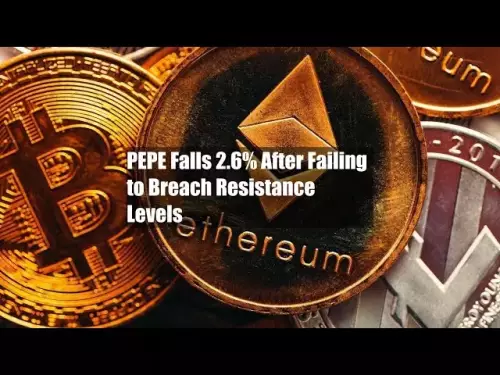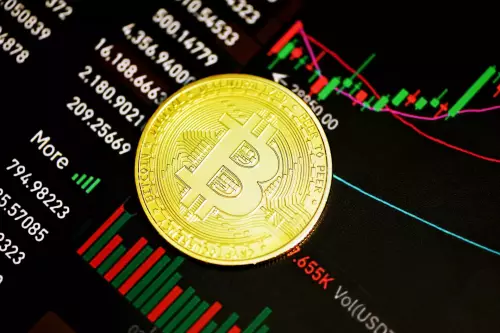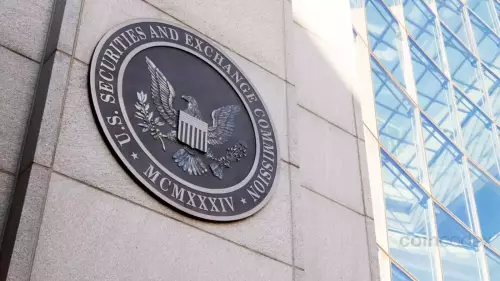 |
|
 |
|
 |
|
 |
|
 |
|
 |
|
 |
|
 |
|
 |
|
 |
|
 |
|
 |
|
 |
|
 |
|
 |
|
Cryptocurrency News Articles
Bitcoin Hardfork Buzz: Luke Dashjr's Plan Sparks Debate
Sep 27, 2025 at 01:23 am
Luke Dashjr's proposal for a Bitcoin hardfork to combat illegal content ignites a fierce debate over censorship resistance and network governance.

Hold on to your hats, Bitcoin enthusiasts! The crypto world is buzzing about a potential hardfork, spearheaded by none other than Bitcoin Knots developer Luke Dashjr. The latest scuttlebutt involves leaked messages suggesting a plan to combat illegal content on the blockchain. Let's dive into the drama, shall we?
The Alleged Hardfork Plan: What's the Deal?
According to leaked chats covered by The Rage, Luke Dashjr is purportedly exploring a hardfork to address concerns about Child Sexual Abuse Material (CSAM) potentially being stored on Bitcoin nodes after the Bitcoin Core v30 upgrade. This upgrade increases the data storage capacity of OP_RETURN, opening the door for media storage and, consequently, potential abuse.
The proposed solution involves a trusted multisig committee that could retroactively alter the Bitcoin blockchain to remove illegal content. Think of it as a digital cleanup crew with the power to rewrite history. Cue the controversy!
Bitcoin Knots vs. Bitcoin Core: A Long-Standing Feud
This isn't just a random idea; it's rooted in a long-standing disagreement between Bitcoin Knots and Bitcoin Core developers. Dashjr and his supporters have been vocal about filtering out what they consider “spam” and harmful data from the Bitcoin network. Michael Saylor has even shown support for Knots. Critics, however, argue that this approach introduces censorship and centralization, undermining Bitcoin's core principles of decentralization and permissionless operation.
The Backlash and the Defense
Dashjr has dismissed the reports as “fake news” but hasn't explicitly denied writing the leaked messages. Meanwhile, supporters like Udi Wertheimer have criticized the reporting as a “sloppy low quality propaganda piece,” defending Dashjr's intentions and downplaying the likelihood of a hardfork. It's a he-said, she-said situation with high stakes.
Implications and Concerns: Censorship or Security?
The big question is whether this proposal threatens Bitcoin’s fundamental principle of censorship resistance. Giving a committee the power to alter blockchain data could pave the way for broader censorship and regulatory controls. It's a slippery slope that has many in the Bitcoin community worried.
Bitcoin Hyper: A Different Kind of Upgrade?
While the hardfork debate rages on, other projects like Bitcoin Hyper ($HYPER) are taking a different approach to upgrading Bitcoin. Bitcoin Hyper aims to bring Bitcoin's blockchain to modern standards by introducing Layer-2 technology for faster transactions and compatibility with dApps and smart contracts. It's an attempt to evolve Bitcoin without fundamentally altering its core principles.
Market Musings and Closing Thoughts
Amidst all this, Bitcoin's price has seen some turbulence, dipping below $109K, and $22B in $BTC options expired. Yet, projects like Bitcoin Hyper continue to thrive, raising millions in presales. As always, the crypto market remains a rollercoaster of news, debates, and innovations.
So, will we see a Bitcoin hardfork? Only time will tell. But one thing's for sure: the debate is heating up, and the future of Bitcoin is anything but boring. Stay tuned, folks, because in the world of crypto, there's never a dull moment!
Disclaimer:info@kdj.com
The information provided is not trading advice. kdj.com does not assume any responsibility for any investments made based on the information provided in this article. Cryptocurrencies are highly volatile and it is highly recommended that you invest with caution after thorough research!
If you believe that the content used on this website infringes your copyright, please contact us immediately (info@kdj.com) and we will delete it promptly.






























































